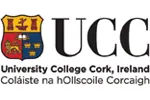

| The award | How you will study | Study duration | Course start | Domestic course fees | International course fees |
|---|---|---|---|---|---|
| MSc | Full-time | 1 year | September | - | - |
Overview
The MSc Marine Biology aims to train graduates in multiple areas of marine biology and equip them with professional certificates in Sea Survival, Powerboat Handling, Marine Radio and First Aid as well as necessary field skills.
The areas of marine biology covered in this master's course include fisheries and aquaculture, genetics, marine ecology and conservation, marine mammals and ecological aspects of Geographic Information System (GIS). In addition, the course has a significant field work component including ship work as well as survey and sampling techniques training. This course, run entirely by the School of Biological, Earth and Environmental Sciences at University College Cork, will provide an understanding of these various disciplines and skills needed in order to meet the growing demand for trained marine biologists at home and abroad.
Course Details
On successful completion of this course, you will be able to:
Part I of the course consists of eight taught modules to the value of 60 credits involving lectures, practicals, seminars and fieldwork. Part II is a substantial research project (BL6017) to the value of 30 credits for those passing Part I. Each of the prescribed taught modules will be examined by a written paper and/or continuous assessment. Each student progressing to Part II of the course must submit the research project in an area of marine biology by a date as prescribed by the School of BEES.
Modules (90 credits):
Part I
BL6010 Characteristics of the Marine Environment (5 credits)
BL6012Marine Megafauna (10 credits)
BL6013Marine Fisheries and Aquaculture (10 credits)
BL6014Marine Fieldwork and Survey Techniques (10 credits)
BL6015Practical Marine Workplace Skills (5 credits)
BL6016Marine Ecology and Conservation (10 credits)
BL6019 Ecological Applications of Geographical Information Systems (5 credits)
BL6020 Genetics and the Marine Environment (5 credits)
Part II Four-Month Research Project
BL6017Marine Biology Research Project (30 credits)
Fact File
Course Code: CKR38 Full-time
Course Title: Biology - Marine Biology
College: Science, Engineering and Food Science
Duration: 1 year Full-time
Teaching Mode: Full-time
Qualifications: MSc
NFQ Level: Level 9
Costs: 2017/2018 Irish/EU EUR 6,000. There will be an additional fee of EUR 2,000 to cover the costs associated with undertaking the professionally certified courses (Sea Survival, Boat Handling, Marine Radio Use and First Aid) as well as all field work (including a residential course in Scotland) undertaken as part of the taught component of the course.
2017 Entry Requirements: A candidate for the MSc in Marine Biology must have obtained at least a Second Class Honours, Grade II degree in any Biological Science or relevant equivalent area. See detailed entry requirements
Closing Date: See details in application procedure section below
Next Intake: 11th September 2017
Course Practicalities
This full-time 12-month course is split into Part I taught modules running from September to April and Part II, a four-month research project for students passing Part I. The course includes ship time experience aboard the Irish State research vessel, Celtic Voyager and field work day trips to various locations in County Cork as well as a week-long residential field course in the West of Scotland in March. In addition, students undertake professional certificate courses in January and February at the National Maritime College of Ireland in Ringaskiddy, Cork
Assessment
The taught modules in the course are assessed by a combination of written examinations and continuous assessment elements (including essays, practical reports, critiques, seminars, dossiers and analytical elements). The four-month research project is assessed by a dissertation, project seminar and an assessment of your practical ability throughout the duration of the project.
Application Procedure
Application for this programme is on-line atwww.pac.ie/ucc. Places on this programme are offered in rounds. The closing dates for each round can be found here. For full details of the application procedure click How to apply.
All required documentation must be either uploaded to your online application, or sent in hard copy to The Postgraduate Applications Centre, 1, Courthouse Square, Galway, immediately after an application is made.
Further Contact Information
Dr Rob McAllen
Programme Co-ordinator
T: +353 (0)21 490 4647
2017 Entry Requirements: A candidate for the MSc in Marine Biology must have obtained at least a Second Class Honours, Grade II degree in any Biological Science or relevant equivalent area. See detailed entry requirements
Closing Date: See details in application procedure section below
Next Intake: 11th September 2017
Contact University College Cork (UCC) to find course entry requirements.
Below are some suggested courses at other providers that you may also be interested in:
Summer Immersion: New York City Summer School
Columbia University, School of Professional Studies
Find out moreIf you do not meet the entry requirements for this course then consider one of these postgraduate preparation courses from another institution:
Graduate Diploma of Engineering (Civil: Structural)
Engineering Institute of Technology
Find out moreThere are 338 other courses listed from University College Cork (UCC). A selection of these are displayed below:
Join the Сưłć´«Ă˝ email list and never miss a chance to turn your study abroad dreams into reality!

Find out more about studying in Ireland